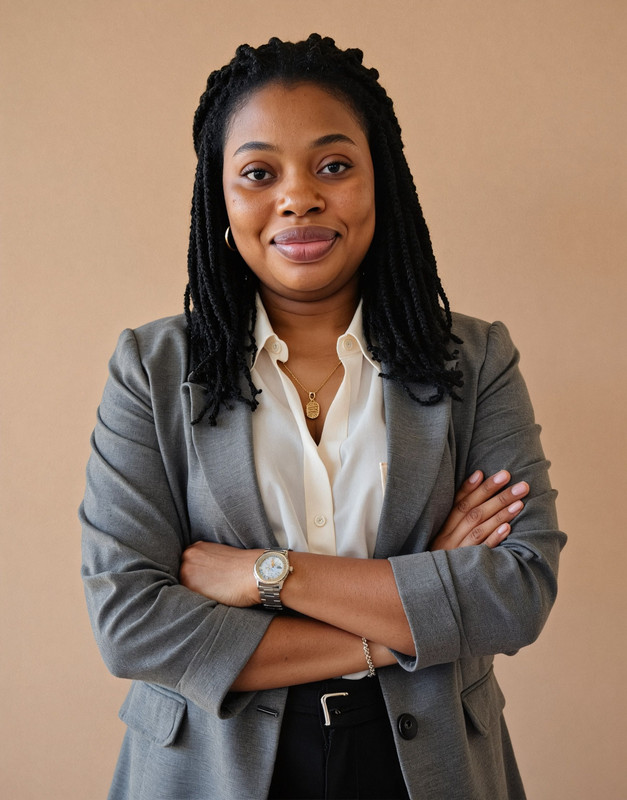Canada - In an era of rapid technological advancement, Adedamilola Atiba-Sogules, a Senior Clinical Embryologist and IVF laboratory director, reflects on the critical intersection of artificial intelligence (AI) and human expertise in the field of embryology. With over 14 years of experience across Africa and North America, Atiba-Sogules stands as a thought leader in advocating for a balance between scientific innovation and compassionate care in reproductive medicine.

AI has begun to play an increasingly significant role in embryo evaluation and selection, bringing precision and consistency to fertility treatments. Advanced algorithms can assess morphokinetic data, providing a level of objectivity and reliability that has the potential to revolutionize fertility outcomes. However, Atiba-Sogules warns that while AI can enhance accuracy, it should never replace the critical human element that drives care in embryology.
“Embryos are more than just clusters of cells – they represent the hopes and dreams of families,” says Adedamilola Atiba-Sogules. “As embryologists, we are more than just technicians; we are caretakers of a very personal journey. While precision in science is important, empathy, ethical reasoning, and clinical judgment are what truly make this profession special.”
The Future of Embryology: A Symbiotic Relationship Between AI and Human Insight
Adedamilola’s career spans diverse global contexts, with significant contributions in both high-resource and resource-constrained environments. In Africa, she implemented cost-effective quality assurance protocols that led to measurable improvements in IVF success rates. In Canada, she has pioneered reforms that optimize laboratory efficiency, promote staff well-being, and improve mentorship structures within embryology teams.
For Adedamilola, the future of Assisted Reproductive Technology (ART) lies in creating a harmonious balance between AI tools and clinical expertise. AI can improve efficiencies, but it must be carefully integrated with human intuition. “AI should augment, not replace, the role of the embryologist. The success of any tool depends on the skill and judgment of the professional using it,” explains Atiba-Sogules.
Empowering Future Generations of Embryologists
With the ongoing global shortage of trained embryologists, Adedamilola places significant emphasis on the development of comprehensive training programs that combine technical proficiency with interpersonal skills. She has mentored numerous young embryologists across continents, many of whom now lead independent programs, ensuring that the future of embryology is bright and diverse.
In addition to technical training, Adedamilola advocates for a culture of well-being and psychological resilience within the IVF lab. The emotionally demanding nature of reproductive care requires a supportive and balanced environment for professionals. “The well-being of our team is directly linked to patient outcomes. By focusing on work-life balance, mental health, and resilience, we’re better equipped to provide optimal care,” says Adedamilola.
Diversity and Inclusion in Reproductive Science
As a Black woman in a specialized field, Adedamilola is a passionate advocate for diversity and inclusion within reproductive science. She is committed to promoting underrepresented voices, particularly those of women and minorities, and believes that the best advancements in medicine happen when leadership reflects the diversity of those it serves.
“I am proud to support initiatives that uplift diverse perspectives within our field,” says Atiba-Sogules. “Excellence in medicine is only achievable when the people working within it reflect the communities they serve.”
Looking Ahead: Ethical Innovation and Human-Centered Care
Adedamilola’s vision for the future of fertility and reproductive medicine focuses on ethical innovation and inclusive access. She sees a future where AI-assisted technologies complement, rather than overshadow, the human touch. While acknowledging AI’s potential in transforming clinical possibilities, Atiba-Sogules insists that these tools must be implemented with integrity and humanity.
“At the heart of all breakthroughs in reproductive care will be the people – both the professionals and the patients,” says Atiba-Sogules. “We must continue to focus on human-centered care and ensure that our innovations enhance, rather than replace, the vital personal connection that defines our work.”
About Adedamilola Atiba-Sogules
Adedamilola Atiba-Sogules is a Senior Clinical Embryologist and IVF laboratory director with over 14 years of experience in reproductive medicine. With a career that spans Africa and North America, she is known for her expertise in embryology and her advocacy for the integration of AI and human empathy in fertility treatments. Adedamilola is committed to shaping the future of reproductive science by mentoring the next generation of embryologists and advocating for diversity and inclusion in the field.
For more information, visit: https://adedamilolaatiba-sogules.com/
Media Contact
Contact Person: Adedamilola Atiba
Email: Send Email
Country: Canada
Website: https://adedamilolaatiba-sogules.com/






